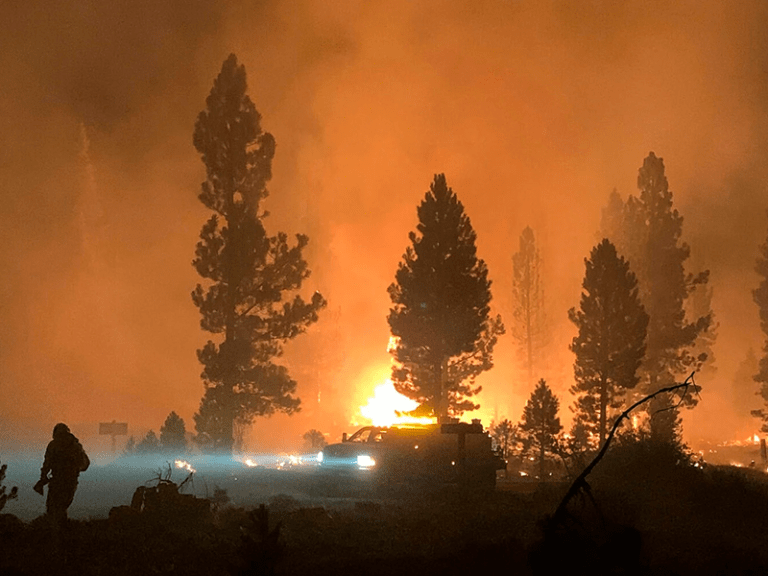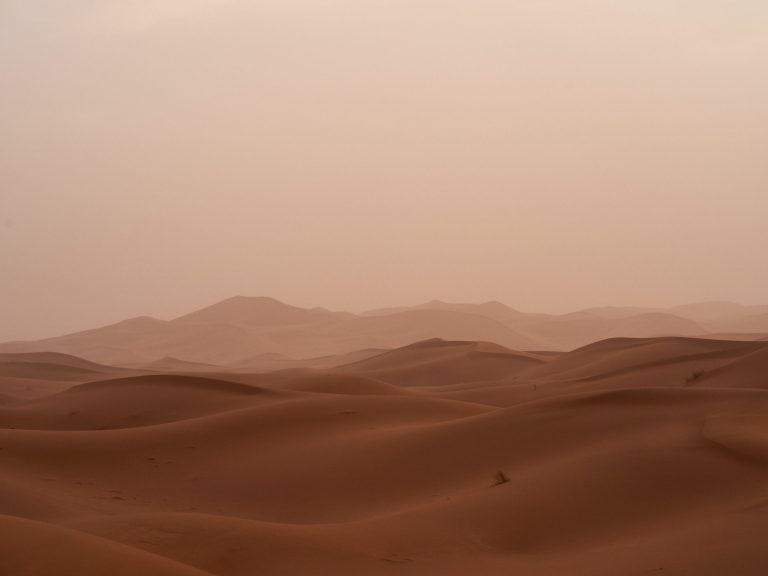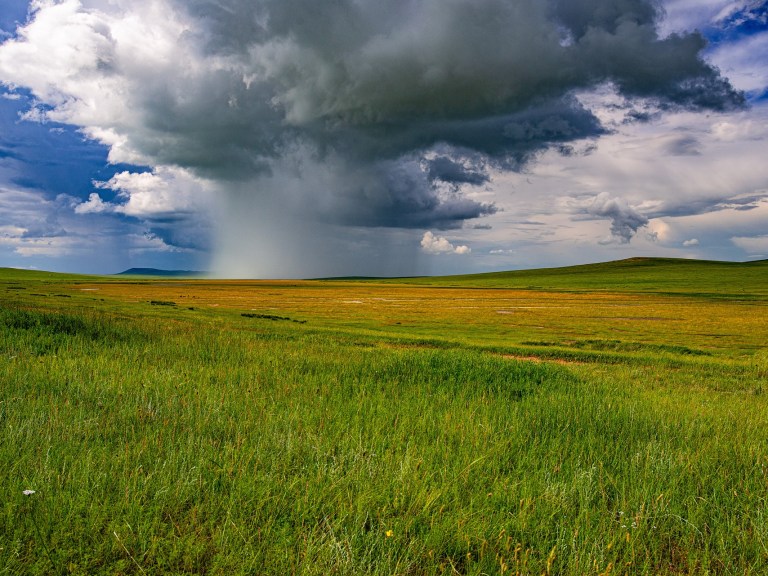Weather
Weather
Explore how weather—the everyday atmospheric events that become climate’s long-term patterns—impacts our health and wellness, and what we can do to combat the challenges of extreme weather.

What exactly is a “fire tornado”?
In 2021, one of the largest wildfires of the year moved through Oregon, triggering weather phenomena, including lightning, massive columns of smoke and ash clouds reaching high into the atmosphere, and even the possibility of a “fire tornado.”

Why are Saharan dust storms getting more intense?
A groundbreaking study shows that the warming planet will make dust storms more intense in the Mediterranean and the Atlantic.
Learn how climate change is causing this shift in weather patterns

Flood insurance is failing. What needs to change?
Harvard Law expert Hannah Perls explains why so many Florida homeowners lack flood insurance and what should be done about it.
Under the weather
The health effects of extreme temperatures, drought, and flooding are a subject of research for many Harvard experts.

Hot, dusty, and unhealthy
Harvard Chan School graduate Barrak Alahmad’s research shows that Kuwait can be a bellwether for understanding the effects of heat and pollution
Hot, dusty, and unhealthyWeathering the storm
Members of the Harvard community are researching how weather impacts our lives and creating solutions to combat its harmful effects.
Preparing health care workers
A new toolkit provides clinic workers with advice and resources for patients struggling with diabetes, kidney disease, dementia, and other ailments during extreme heat.
Mitigating the harmful effects of glass building facades
Instead of leaving the outside of the building for last, what would happen if buildings were designed from the outside in?
Helping schools cope with weather emergencies
Harvard Graduate School of Education offers advice for school leaders on preparing for the next weather emergency or man-made disaster.

Backyard meteorology: The science of weather
In this free online course, learn to forecast the weather just by looking out your window.
Is it possible to recreate a storm?
Standing safely on dry land inside a Harvard classroom, students use a pump, tank, turntable, and tap water to “build” a miniature hurricane as a way to learn about these devastating storms.
Why does lightning strike less often out at sea?
A team of researchers analyzed weather, aerosol, and lightning activity data to explore why the amount of lightning in thunderstorms over land is greater than that seen in thunderstorms over tropical oceans.
What is the connection to climate change?
The Harvard community is advancing and catalyzing research across all of our Schools to create comprehensive University-wide environmental education and real-world climate solutions.
YOU MAY ALSO LIKE




